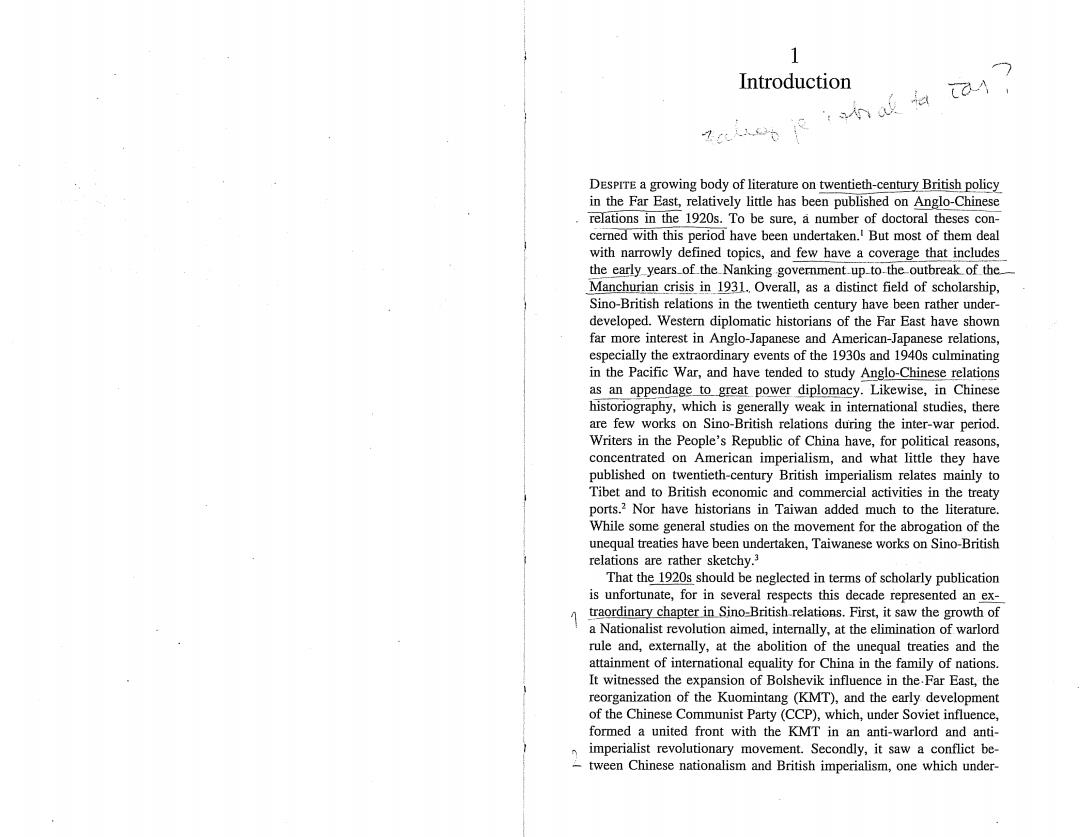正在加载图片...

1 Introduction 7人2的 DEsPrrE a growing body of literature on twentieth-century British policy in the Far East,relatively little has been published on Anglo-Chinese relations in the 1920s.To be sure,a number of doctoral theses con- cerned with this period have been undertaken.But most of them deal with narrowly defined topics,and few have a coverage that includes the early years_of the Nanking government up to-the outbreak of the Manchurian crisis in 1931..Overall,as a distinct field of scholarship, Sino-British relations in the twentieth century have been rather under- developed.Western diplomatic historians of the Far East have shown far more interest in Anglo-Japanese and American-Japanese relations, especially the extraordinary events of the 1930s and 1940s culminating in the Pacific War,and have tended to study Anglo-Chinese relations as an appendage to great power diplomacy.Likewise,in Chinese historiography,which is generally weak in international studies,there are few works on Sino-British relations during the inter-war period. Writers in the People's Republic of China have,for political reasons, concentrated on American imperialism,and what little they have published on twentieth-century British imperialism relates mainly to Tibet and to British economic and commercial activities in the treaty ports.2 Nor have historians in Taiwan added much to the literature. While some general studies on the movement for the abrogation of the unequal treaties have been undertaken,Taiwanese works on Sino-British relations are rather sketchy.3 That the 1920s should be neglected in terms of scholarly publication is unfortunate,for in several respects this decade represented an ex- traordinary chapter in Sino-British-relations.First,it saw the growth of a Nationalist revolution aimed,internally,at the elimination of warlord rule and,externally,at the abolition of the unequal treaties and the attainment of international equality for China in the family of nations. It witnessed the expansion of Bolshevik influence in the.Far East,the reorganization of the Kuomintang (KMT),and the early development of the Chinese Communist Party (CCP),which,under Soviet influence, formed a united front with the KMT in an anti-warlord and anti- imperialist revolutionary movement.Secondly,it saw a conflict be- -tween Chinese nationalism and British imperialism,one which under-